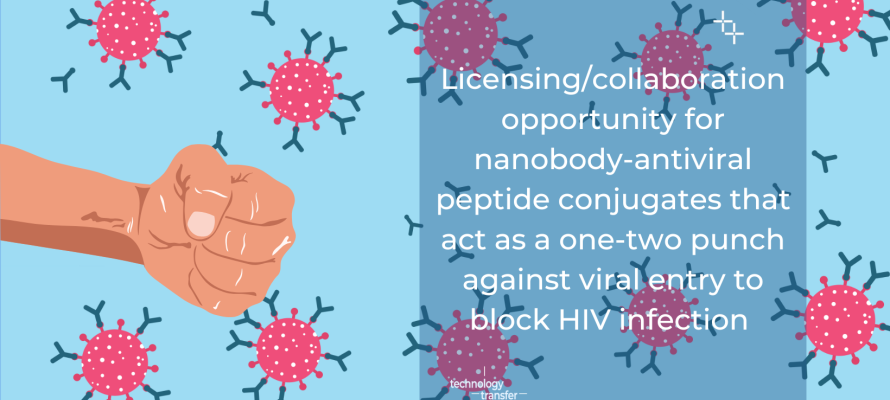Licensing/Collaboration Opportunity for Nanobody-Antiviral Peptide Conjugates for Potent HIV Entry Inhibition

The NIH National Institute of Diabetes and Digestive and Kidney Diseases is seeking a licensee or collaborator for nanobody-antiviral peptide conjugates that act as a one-two punch against viral entry to block HIV from infecting human CD4* T-cells. Potential commercial applications include:
- a long-acting injectable or topical HIV therapeutic for treatment and pre-exposure prophylaxis (PReP),
- ex vivo protection of donor cells or engineered cell therapies susceptible to HIV infection, and
- a laboratory or fertility-clinic reagent to prevent HIV transmission during assisted reproductive procedures.
The nanobodies guide the drug to the virus’ docking site and impedes receptor binding, while the linked peptide halts the membrane-fusion step, stopping viral entry. Competitive advantages of this technology include:
- dual-mechanism action (receptor blockade + fusion inhibition) dramatically reduces the likelihood of viral resistance compared with single-target drugs,
- >10x higher potency than standalone antiviral peptides in vitro, supporting lower therapeutic doses and a better safety profile, and
- scalable, plug-and-play conjugation platform that can be re-engineered for new HIV variants or other clinically relevant viruses.
You can learn more about this technology or get in touch with the licensing contact on the abstract: Nanobody-Antiviral Peptide Conjugates for Potent HIV Entry Inhibition.
